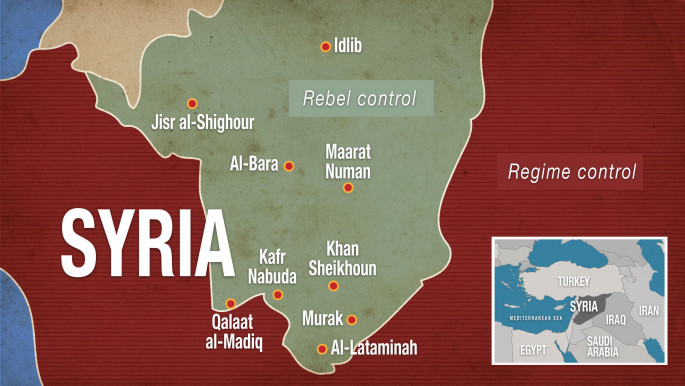Erdogan, Putin hold talks over the fate of Syria border
The two leaders met in southern Russia with just hours to go before a deadline for the withdrawal of Kurdish fighters from parts of Syria under a US-brokered deal.
Putin - who has emerged as the key powerbroker in Syria - said he hoped to find a way to deal with the "very severe" situation in the country's north.
Sitting down with Erdogan in Russia's Black Sea resort of Sochi, Putin said he believed that good ties between the two countries "will let us find an answer to even the most difficult questions".
Russia and Turkey have emerged as the main foreign players in Syria's conflict, with Moscow's position strengthened after US President Donald Trump announced this month he would be withdrawing American forces from the north of the country.
 |
| Click here to enlarge |
The announcement cleared the way for Turkey to launch a cross-border offensive on October 9 against the Kurdish YPG militia, viewed by Ankara as "terrorists" linked to the outlawed Kurdistan Workers' Party (PKK).
The assault sparked Western outrage and accusations of betrayal from the Kurds, whose frontline fighters were crucial in the fight against the Islamic State group in Syria.
Speaking to reporters at Ankara airport on his way to Sochi, Erdogan said he and Putin would discuss "steps to end (Kurdish fighters') presence in regime-held areas" of Syria.
Following a deal with US Vice President Mike Pence last week, Turkey announced a 120-hour pause of the offensive from last Thursday under which Kurdish fighters were to withdraw.
Turkey says that deadline expires at 1900 GMT on Tuesday and Erdogan warned Ankara would not hesitate to resume its military assault.
"If the promises given to our country by the United States are not kept, we will continue our operation from where we left off with greater determination," he said.
Twitter Post
|
Russia moves in
Russia is a crucial ally of Syria's President Bashar al-Assad and has demanded that Turkey respect the country's territorial integrity.
As the US troops began to withdraw last week, Russian forces moved in to support the Syrian army, whose help against Turkey was requested by the Kurds.
Erdogan said last week he was not bothered by the Damascus regime's return as what mattered to Ankara was pushing back the Kurdish fighters from the proposed 32-kilometre-deep (20-mile) safe zone.
Despite being on the opposite sides of the Syria conflict, Turkey and Russia have been working together to find a solution to the war.
Erdogan said he would also discuss the situation in Syria's northwestern region of Idlib during the meeting with Putin.
Assad said Tuesday that defeating jihadists in Idlib is the key to ending the country's eight-year-old civil conflict.
"The battle of Idlib is the basis for resolving chaos and terrorism in all other areas of Syria," he said while visiting troops on the front line with jihadists in the town of Al-Hbeit in Idlib province.
'Talking with terrorists'
Erdogan confirmed the withdrawal of some Kurdish fighters from the zone he wants to run from Jarabulus in northwestern Syria up to the Iraqi border.
"Around 700-800 have withdrawn so far," Erdogan said, adding that the remaining 1,200-1,300 would reportedly also be pulling out.
"We are pursuing it. The process will not be over without a full withdrawal," he warned.
On Monday, French President Emmanuel Macron told Putin that France wanted to see an extension of the ceasefire by Turkey. But Erdogan rejected this on Tuesday.
"There is no such proposal that was conveyed to me from Macron. Macron is in fact talking about such things mostly with terrorists," Erdogan said, referring to a meeting between Jihane Ahmed, the spokeswoman for the Kurdish-led Syrian Democratic Forces (SDF), and the French leader.
Ankara says the YPG is a "terrorist" offshoot of the PKK, which has been waging an insurgency inside Turkey since 1984. The PKK is blacklisted as a terrorist group by Ankara, the United States and the European Union.
Follow us on Twitter: @The_NewArab
More In News





 Follow the Middle East's top stories in English at The New Arab on Google News
Follow the Middle East's top stories in English at The New Arab on Google News
![Israeli forces ordered bombed Gaza's Jabalia, ordering residents to leave [Getty]](/sites/default/files/styles/image_330x185/public/2176418030.jpeg?h=a5f2f23a&itok=_YGZaP1z)

